That's the problem for a police officer in a town north of Phuket as he is left with what remains of an international tsunami victim identification project that was once acclaimed around the world.
''Now that they've spent the money, they've given the project to me,'' said Superintendent Colonel Taratcha Tamspat, chief of police in Takuapa, a coastal centre in the neighboring province of Phang Nga.
The Thai Tsunami Victim Identification unit once involved police and forensic experts from around the world in the largest and most successful project of its kind, giving names back to the thousands of tourists and Thais who were killed by the tsunami on Phuket and along the Andaman coast on December 26, 2004.
Now, it appears, the epic project has drawn to a close with the all-Thai vestiges of the endeavor dispensing with data and more than 380 bodies to a local policeman who has little idea about the grand international mission.
It was left to Phuketwan to remind Colonel Taratcha that the seventh anniversary of the Indian Ocean tsunami, Thailand's greatest natural disaster, falls next Monday.
''I didn't know,'' the colonel said. ''I have been in this job in Phang Nga for less than a year.''
The colonel remains perplexed at being given the bodies and the information connected to the project without so much as a briefing.
''The people at the TTVI gave us the information in boxes, without a clue as to what it is all about,'' he said. ''We don't have skills or equipment. We don't know much about what went on.''
The bodies, the remains of the as-yet-unnamed victims of the tsunami, are all in a cemetery in the village of Bang Maruan, a few kilometres south of Takuapa. Each body is in a metal coffin, and each coffin is encased in a concrete tomb, in case further DNA samples are needed one day.
The graveyard, with a metal plaque at the gates listing the 39 nations involved in the epic forensic project, has often been left overgrown with weeds in the care of the TTVI.
What really irks Colonel Taratcha is that the handover also included a large electricity bill. For years, some bodies that were to be handed back to relatives were stored above-ground in cooled sea shipping containers.
''We don't have funding to pay for the electricity used by the TTVI so we will have to pay off the bill a little at a time,'' Colonel Taratcha said.
Two bodies were returned to relatives just this year, the colonel said, one to a family in Petchabun province and the other to local relatives in Takuapa.
The bodies of 24 identified Burmese are still being held because authorities in Burma (Myanmar) have never assisted with contacting their relatives.
About 5400 people, almost equally Thais and from other countries, perished when the tsunami swept in. Some were easily identified in the days immediately after the big wave but the remainder could not be given names.
Rather than bury the dead without identification, the international community decided to give them names and sent scores of police, dentists and forensic scientists to Phuket and the Andaman coast.
A total of 3279 people were identified and returned as part of the remarkable international process.
With international funding, the cemetery and two substantial buildings were constructed in the hope that identifications would continue.
As the international groups withdrew, interest in the process waned and the prospects of giving someone a name with 99.9 percent certainty diminished.
But the colonel does have some good news.
''We have cleaned up the cemetery and the local Public Health department unit would like to use the buildings as part of their drug rehabilitation program,'' he said.
While a memorial service at the tsunami victims' cemetery seems unlikely this year, the anniversary will be marked nearby in the village of Nam Khem and at the patrol boat that was washed two kilometres inland in Khao Lak.
On Phuket, memorial services will be held at Patong, Kamala and at the Mai Khao tsunami memorial wall.

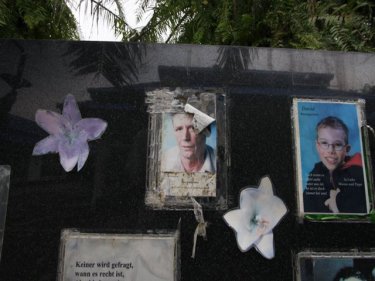
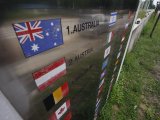
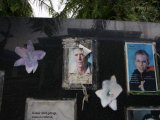


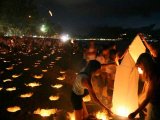
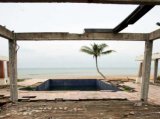
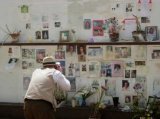
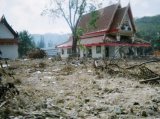
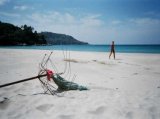



What a disgrace! We return to Khao Lak each year and regularly visit the cemetery in Bang Maruan in the hope to see it and the victims it contains being afforded the respect it demands only to find it deteriorating further. This now is a despicable attempt for the national authorities to wash their hands of an event that brought worldwide support for this ravaged part of Southern Thailand but should now bring worldwide condemnation for its heartlessness.
Posted by Anonymous on December 22, 2011 09:06